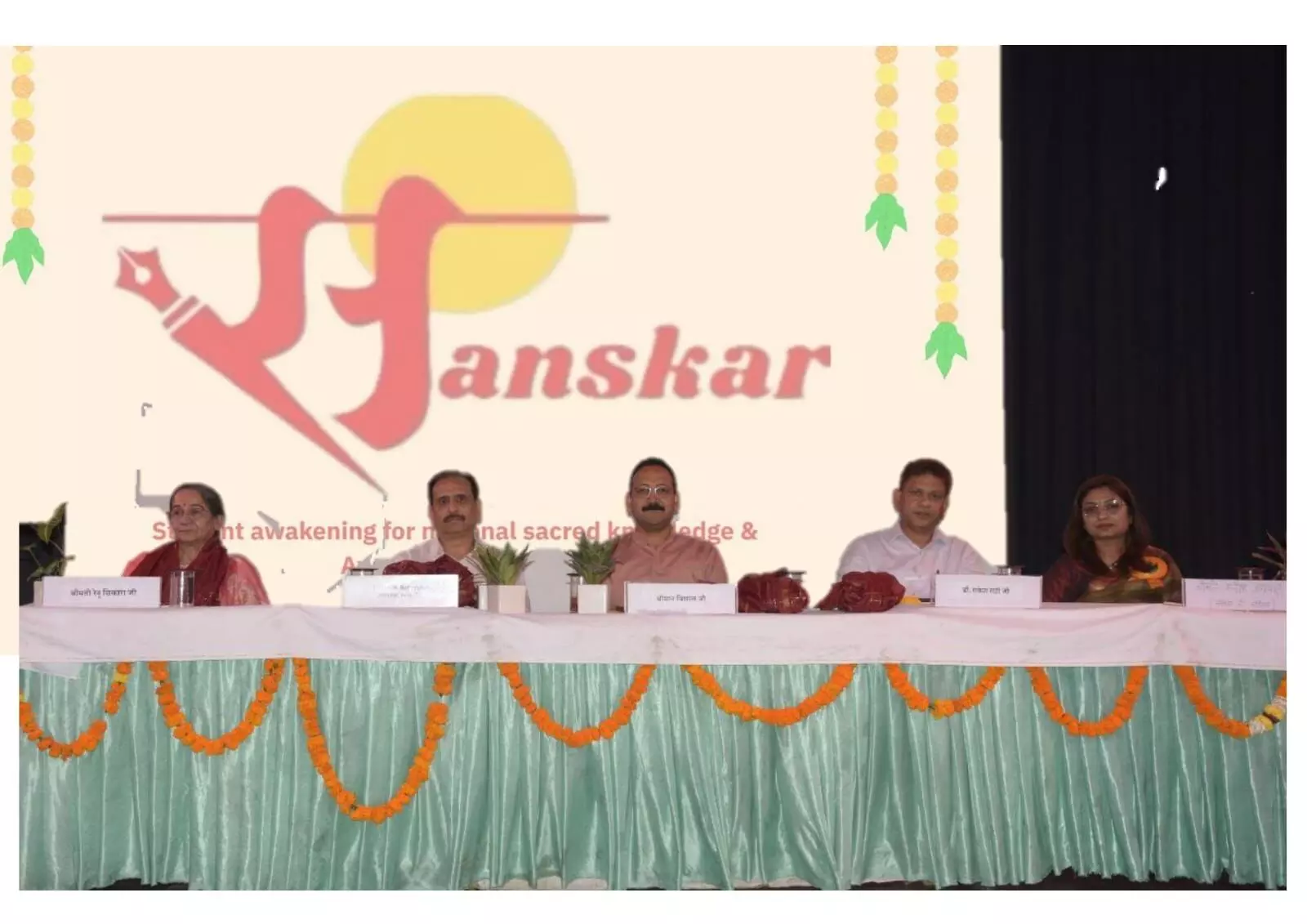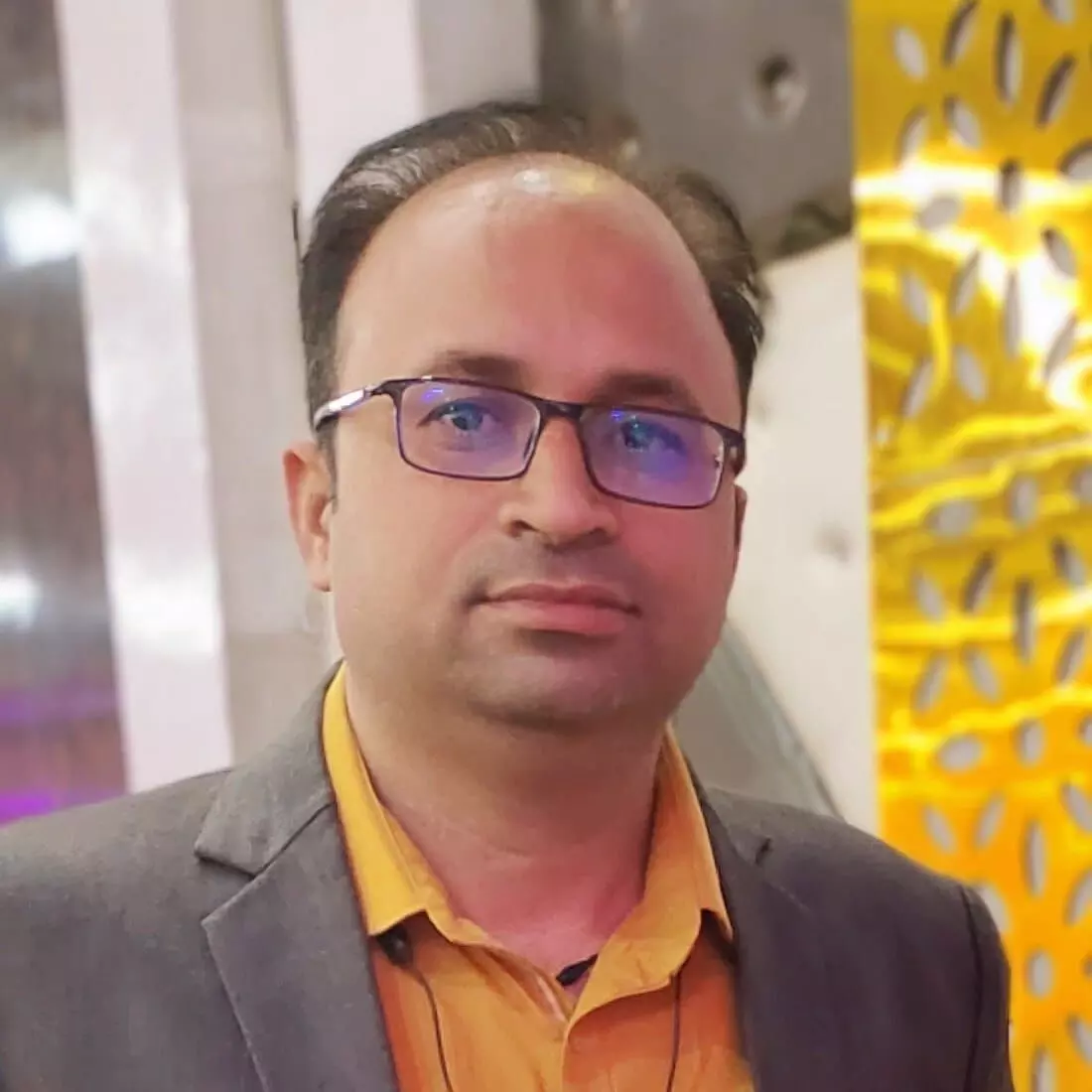From Ancient Wisdom to Modern Classrooms: Experts Push for ‘Sanskar-Based Education’ in India

On the occasion of New Year (Vikram Samvat 2082), today, 31 March 2025 (Monday), a grand and thought-provoking program on the topic 'Reconstruction of India: Ownership in Education' was organized in the premises of Technea Institute of Advanced Studies, Sector 14, Rohini. The chief speaker of this program organized by the North Delhi branch of Sanskar, an organization working towards making students aware of connecting with the roots of India's sacred and ancient knowledge tradition, was renowned social worker Mr. Vishal ji. Mrs. Renu Chikara (Deputy Director of Education, Delhi Government), Dr. Rakesh Rahi (Deputy Director of Education, Delhi Government), Dr. Ajay Kumar (Director, Technea Institute of Advanced Studies) and Dr. Ram Kailash Gupta (Chairman, Technea Group of Institutions) were also present in the program. A large number of teachers, educationists and students were also present in this event.
The objective of the program was to present the rich tradition of Indian education and knowledge and to discuss about its urgent need and relevance in the current times. At the same time, an attempt was made to explain to the youth how we can contribute towards the reconstruction of our nation through education. On this important occasion, eminent social worker Shriman Vishal ji was present as the keynote speaker. His views and experiences not only impressed the audience, but also generated deep discussions on the current state of Indian education and its future prospects.
In his address, Vishal ji said that in fact the new education policy has been made keeping the values of India at the center, but apart from that, some more efforts should be made which have been included in the sanskar. The topics related to the culture and tradition of sanskar not only need to be taken to all the educational institutions, schools and other institutions of the country but also need to be reached among the students, teachers and parents. Vishal ji said that culture starts from the family itself and for advancement and progress, teaching and formation of culture should continue continuously because as soon as it stops, degradation and contraction begins. He emphasized that education is not just the knowledge of letters but according to Swami Vivekananda, education is the manifestation of the divinity that is inside man. Much beyond the knowledge of letters, education inspires man towards the objectives of his life and frees him from the bondage of birth and death. Education is not just to make a person capable of earning money but real progress and upliftment is possible only by the inclusion of culture and culture in it.
Addressing the program, Deputy Education Director of Delhi Government, Mrs. Renu Chikkara appealed to the school and family to take equal responsibility for the formation of culture. Taking this point forward, Deputy Education Director of Delhi Government, Dr. Rakesh Rahi said that the basic mantra of our culture and sanskar is based on Sarve Bhavantu Sukhinah Sarve Santu Niramaya and Vasudhaiva Kutumbakam. Therefore, it is necessary that social, cultural and moral values are included with education so that we can move forward towards holistic development in a real way.
The speakers in the program emphasized in totality that to make India a strong and prosperous nation as well as a leading global center of education and knowledge as before, we have to take steps towards making our education system self-reliant in its traditional form. For this, it is necessary that we give priority to self-confidence and indigenous knowledge in our education system. For this purpose, he explained to the youth the importance of connecting with the culture, traditions and history of India. Along with this, emphasizing on the quality and inclusiveness of education, it also came to the fore in the program that how the new education policy is working towards providing the students with the ability to think and understand in a more independent and multidimensional way and its aim is not only to increase the knowledge of the students but also to make them responsible citizens towards the society. Manisha Aggarwal thanked all the speakers, listeners and the teachers, academicians and students present for being a part of this successful program.
